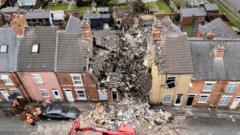The reluctance of religious organisations to offer recompense for the lives ruined fits a pattern of denial and evasion
There are some stories so horrifying that their details embed themselves in your flesh and haunt you for the rest of your days. The suffering of the women and babies – an estimated 170,000 of them – who were incarcerated and abused in the Magdalene laundries and mother-and-baby homes that housed “fallen women” is one such story. It is a scandal that is difficult to read about without experiencing an overwhelming feeling of disgust, from the testimonies of abuse and forced adoption, to the mass grave at the former St Mary’s mother-and-baby home near Tuam, County Galway, which contained 796 bodies of babies and children. The nuns put many of them in a septic tank. There were no burial records.
The efforts of survivors, campaigners and historians to bring these stories to light in the face of obstruction and indifference has been the work of decades. The Irish government made a formal apology in 2021 after a judicial commission report. Yet this story, and the human misery it has caused, is not over: the last home closed in 1996. There are living survivors, and people who are descended from the victims. The exhumation of the children’s remains, so that they can be identified if possible and given a proper burial, is continuing. And then there is the question of redress.
Rhiannon Lucy Cosslett is a Guardian columnist and author
Do you have an opinion on the issues raised in this article? If you would like to submit a response of up to 300 words by email to be considered for publication in our letters section, please click here.
Continue reading...










